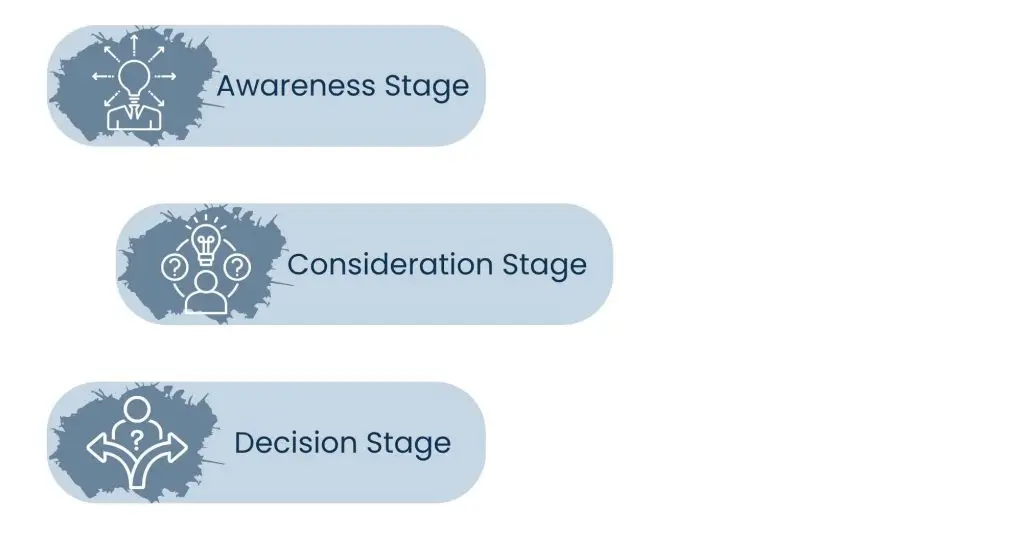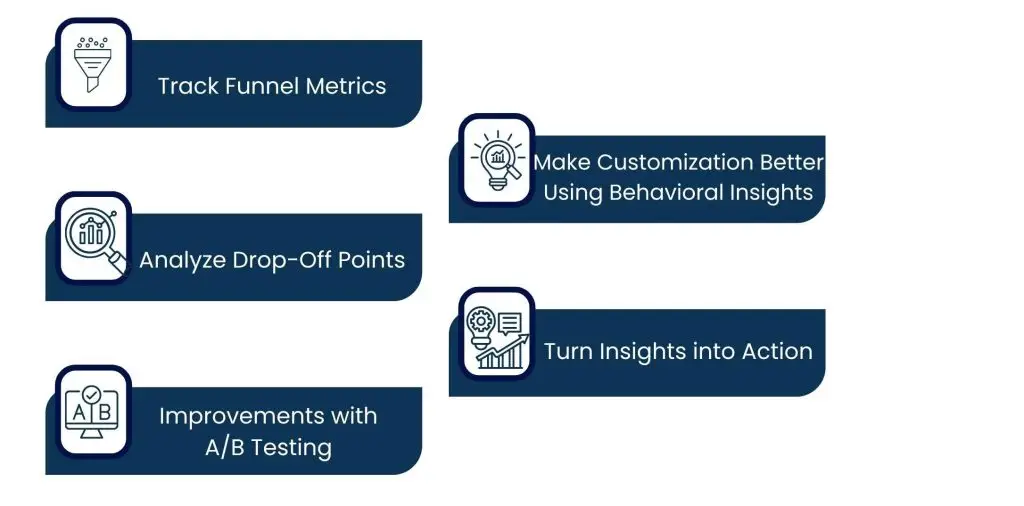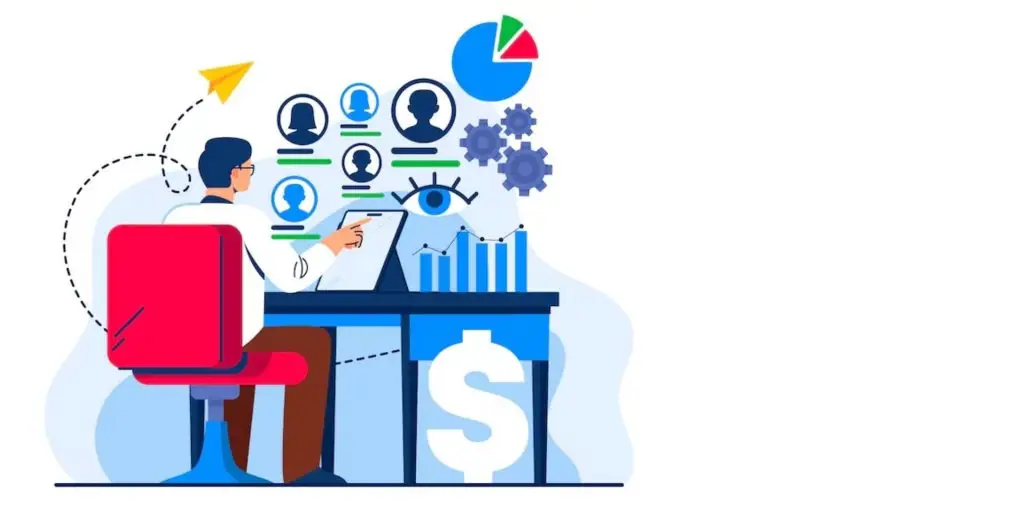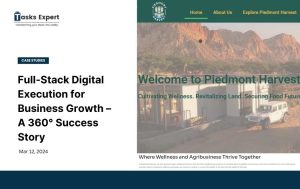Introduction
The highly competitive market in which B2B tech companies operate is characterized by lengthy sales cycles, a large number of decision-makers, and sophisticated proposals. An efficient sales funnel is most advantageous and most needed. From the first touchpoint to the final conversion, planning is necessary at every stage of the funnel to deliver value, foster trust, and specifically guide leads.
Funnel optimization for a B2B IT solutions provider involves combining marketing and sales to successfully nurture high-intent prospects, more than just moving leads down the pipeline. Businesses improve closure rates, expedite lead qualification, and customize outreach by utilizing automation technology and B2B digital marketing tactics.
Tech companies can also grow outreach activities with the help of B2B sales outsourcing partners and B2B lead-generating agencies.
With support from B2B lead generation companies and B2B sales outsourcing partners, tech firms can also scale outreach efforts without sacrificing quality. Whether you’re in SaaS, IT services, or part of the growing wave of B2B ecommerce companies, optimizing the sales funnel drives measurable growth.
In this blog, we’ll break down key strategies to build a sales funnel that accelerates buyer journeys and turns interest into long-term business relationships.
Understand the B2B Tech Funnel: Awareness to Decision
The sales funnel is a multi-touch process that involves research, trust-building, and customized communication for B2B tech companies. The stakes are bigger, there are more decision-makers involved, and the purchasing cycle is longer. To achieve the best results, it is necessary to know the entire B2B funnel, which consists of Awareness, Consideration, and Decision.

1. Awareness Stage
Your potential clients are only beginning to recognize an issue or look for opportunities during the awareness phase. The objective now is to educate rather than to sell. Delivering useful, pertinent material that establishes your business as a reliable authority in the tech sector should be the main goal of any B2B tech marketing campaign.
- Write whitepapers, blog entries, and LinkedIn content that tackles typical problems.
- Implement strong SEO tactics that ensure your content reaches the audience when searched for.
- Industry papers, podcasts, and webinars increase top-of-funnel engagement.
Early reputation building is most important for business-to-business e-commerce firms and SaaS platforms.
2. Consideration Stage
A lead moves into the consideration stage after learning about their issue and possible fixes. Now they’re actively researching providers and comparing different B2B tech companies’ solution providers. Here, your objective is to show how your solution outperforms the competitors in addressing their particular problems.
- Client success stories, product comparison guides, and case studies are effective at this point.
- Interactive resources like ROI calculators and solution finders aid in customizing the trip.
- You may maintain brand awareness with nurture campaigns that use remarketing advertisements and email marketing.
Additionally, b2b lead-generating firms and b2b sales outsourcing services can help you with lead qualification, demo scheduling, and pipeline maintenance.
3. Decision Stage
The prospect is prepared to select a supplier at this point in the process. You have the chance to seal the deal now, but not by promoting features. Rather, in the last stage, decrease friction, boost confidence, and reinforce value.
- To eliminate hesitancy, provide customized demos, thorough onboarding strategies, or pilot projects.
- To build social proof, provide use cases and testimonials from comparable customers.
- Outsourced partners or sales representatives should highlight results and personalize offerings.
This step can make or break the whole funnel for B2B tech companies. It is crucial to have conversations that are solution-focused, respond quickly, and have clear implementation procedures. If your organization outsources b2b sales, make sure your salespeople are equipped with the knowledge and messaging to support conversion efforts.
A different strategy, content, and alignment between sales and marketing are required at every step of the funnel. B2B tech companies boost pipeline flow, draw in quality prospects, and turn them into happy customers by utilizing a well-designed funnel effectively.
Also Read: Setting Up a Home Office for Tech Professionals
Align Marketing For B2B Tech Companies and Sales for a Seamless Experience
One of the most overlooked but essential aspects of sales funnel optimization for B2B tech companies is marketing and sales department alignment. Lost revenue opportunities, fractured messaging, and inadequate lead handoff occur due to these departments functioning separately. Leads dropping off the buying process is referred to as funnel leakage, and it often happens due to misunderstandings or misaligned goals between departments.
For B2B tech companies, solution providers, where the sales cycles are long and involve multiple stakeholders, sales and marketing alignment becomes a must. Ensuring both departments are aligned improves funnel performance considerably in a world where conversion is based on one-on-one engagement and trust.

1. Define Shared Goals and KPIs
Step one- Both parties define what success will look like. Include pipeline velocity, average deal size, and MQL to SQL conversion rates to create shared KPIs that track movement through the funnel. B2B ecommerce companies and SaaS providers use lifecycle phases and lead scores to allocate efforts effectively.
By making certain that both teams share the same objective—revenue and customer growth—these metrics help promote accountability.
2. Bring Your CRM and Marketing Tools Together
HubSpot, Salesforce, and Zoho CRM are some of the combined platforms that have the potential to significantly promote marketing and sales collaboration. These tools give deep insights to both teams, along with monitoring access, which leads to activity in real-time.
CRM connectivity enables salespeople to engage with prospects with the correct messaging at the right time, while B2B tech companies’ marketing departments may refine campaigns based on actual sales feedback. This data-driven strategy through the funnel helps make better judgments by removing guesswork.
3. Get Sales Involved in Campaign Planning
Involving sales in the early stages of developing marketing strategies is another crucial component to bringing teams together. Salespeople know the best objections, content requests, and messaging since they work directly with prospects on the front lines.
B2B tech companies collaborate with sales teams from the start to ensure that marketing campaigns are relevant and audience-driven. Consider creating pitch decks, one-pagers, and case studies suited to a specific market. It also generates content that directly supports the sales process.
4. Use B2B Sales Outsourcing to Plug the Gaps
Outsourcing B2B sales is a strong way to stay in sync and effective without bogging down in-house personnel if your internal team is overwhelmed. Technical SDRs (Sales Development Representatives) are contracted out to work on lead qualification, cold calling, and follow-through to ensure marketing-generated leads get properly qualified.
Your sales and marketing teams work closely with an authentic partner to ensure smooth handoffs and messaging alignment. It works great for startups and B2B lead generation firms that need to grow rapidly without sacrificing personalization or quality.
Aligning both teams significantly results in a smooth, cohesive buyer process. Enabling B2B tech companies to turn more leads into loyal clients. The sales funnel is a well-oiled machine that drives quantifiable growth and sustained success. This collaboration shares knowledge and employs the same approach.
Leverage Data for Continuous Funnel Improvement Of B2B tech companies
For B2B IT organizations, the distinction between an effective and high-performing sales funnel is the ability to base decisions on data. When gut instinct or assumption fails, these contracts involve many parties and long timescales in an intricate and competitive sales environment. Companies must use real-time data, analytics, and insights into customer behavior to optimize performance at every level.
B2B tech companies’ business, or a B2B e-commerce business, data ultimately determines what’s working, what isn’t, and what can be tweaked, wherever you are in the SaaS business. By becoming more familiar with the way leads interact with campaigns, sales reps, and content, you can optimize your funnel for greater efficiency.

1. Track Funnel Metrics
Start by identifying and consistently tracking important sales funnel KPIs. These may include:
- Traffic-to-lead conversion rate.
- MQL to SQL conversion rate.
- Average sales cycle length.
- Email open and click-through rates.
- Content engagement metrics.
Monitoring these metrics allows them to evaluate campaign performance and optimize lead quality for B2B lead generation companies. It offers valuable feedback on which assets are driving action for B2B tech marketing teams.
2. Analyze Drop-Off Points
One of the biggest benefits of data tracking is the ability to pinpoint where leads are falling off. Are they abandoning forms? Ignoring follow-up emails? Stalling after a product demo?
B2B tech companies isolate friction and bottlenecks by looking at funnel drop-off data. This may mean adjusting landing page messaging, making demo scripts better, or providing more value at the consideration stage. Minor optimizations driven by sound data drive significant increases in conversion rate.
3. Improvements with A/B Testing
Data simply reveals what failed and what new things you need to try. A/B testing email, landing pages, CTAs, and content types helps you optimize performance based on real user action.
For instance, B2B ecommerce businesses may A/B test two iterations of a pricing page to compare which generates more demo requests. Data, not conjecture, drives a continual optimization strategy that includes these iterative improvements.
4. Make Customization Better Using Behavioral Insights
Today’s consumers expect individualized service. B2B tech marketing teams segment leads according to their behavior, interests, and activity levels with behavioral analytics. This provides highly tailored information, which raises open rates and click-throughs.
Behavioral data helps sales reps, or B2B sales outsourcing teams, target prospects with the right message at the right time with the aid of technology such as CRM integration and marketing automation.
5. Turn Insights into Action
In the end, data value is something that you create by doing something with it. Look at funnel data over time, conclude trends, and make thoughtful decisions. For B2B lead gen businesses, this could translate to shifting ad budgets to high-performing campaigns. For B2B tech companies, it could translate to tweaking lead scoring models to rank high-intent activities.
Through data across the sales funnel, B2B technology businesses can be assured of having all touchpoints maximized, each lead targeted for nurturing, and each opportunity optimized for growth.
Implement Marketing Automation and Personalization For B2B Tech Companies
Automation and personalization are the most important factors for b2b tech companies, offering them scalability. To automate B2B tech marketing and to increase conversion rates, Tools like HubSpot, Marketo, and Pardot are used for better lead nurturing.
Marketing automation and personalization can revolutionize your funnel.

1. Automated Lead Nurturing
Automate email sequences, lead scoring, and follow-up actions to minimize manual work. This nurture leads consistently down the funnel and passes them to sales teams or B2B sales outsourcing partners.
2. Trigger Campaigns by User Behavior
Use behavior-based triggers, like site visits, form fills, or content downloads, to send targeted messages. This makes your messaging more relevant, enabling B2B tech companies to increase engagement and build trust.
3. Segment Your Audience for Improved Targeting
Cluster leads by industry, company size, or buying stage to make messaging personal. For B2B ecommerce businesses, segmentation enables more personalized product suggestions and cross-selling opportunities.
4. Deliver Dynamic and Personalized Content
Personalized landing pages, email, and CTAs based on data captured with automation platforms. Personalizing the experience boosts click-through rates, conversions, and overall funnel performance
5. Integrate with CRM for Unified Sales Insights
Integrate your automation platform with your CRM to provide both marketing and sales teams with complete visibility into lead activity. It provides more accurate targeting, eliminates duplication, and enables easier collaboration.
By bringing automation and personalization together, B2B tech companies can provide smarter, quicker, and more effective marketing, enhancing funnel performance while fostering better relationships with potential customers.
Also Read: Affordable Audio Marketing Services
Why Funnel Optimization Is Critical for The Growth Of B2B Tech Companies?
Sales funnel optimization is a growth strategy and a best practice for B2B tech companies. An effective funnel ensures that leads move smoothly from awareness to conversion, even in the face of long sales cycles, multiple touchpoints, and intricate buyer journeys. Offer B2B IT solutions, or are one of the many emerging B2B e-commerce companies, a well-designed funnel turns attention into revenue, whether you manage a SaaS platform.

This explains why funnel optimization is so important for B2B tech companies:
1. Boosts Quality Leads and Conversion Rates:
Better marketing and sales coordination results in more efficient lead nurturing and timely handoffs. This helps B2B tech companies develop more quickly and close deals more quickly.
2. Shortens Sales Cycles:
With better alignment between marketing and sales, leads are nurtured more effectively and handed off at the right time. This accelerates deal closure and supports faster growth for B2B tech companies
3. Optimizes the Efficiency of Resources:
Utilizing every marketing spend effectively and minimizing lead leakage are two benefits of an efficient funnel. B2B IT marketing teams can use it to rank high-performing channels and messaging in order of importance.
4. Allows for Improved Sales Planning and Forecasting:
B2B tech solution suppliers can more precisely forecast income and allocate resources with the help of a structured funnel. This results in sustainable scaling and more intelligent decision-making.
5. Encourages the Use of Outsourced Growth Models:
A simplified funnel improves accountability and teamwork when working with B2B sales outsourcing partners by offering a clear path for lead qualifying, nurturing, and conversion.
By investing in funnel optimization, B2B tech companies can create scalable, data-driven growth that brings teams together, enhances buyer experiences, and drives long-term success.
Conclusion
The other half is assisting the prospects on a personalized, effective, and data-driven path to conversion for B2B tech companies. Increasing lead generation is only half of the sales funnel optimization process. Each touchpoint must complement the buyer’s goal and be enhanced by smooth marketing and sales coordination from awareness to choice.
By using contemporary B2B tech marketing methods, utilizing automation, and personalizing communications, businesses and households can greatly enhance involvement and decrease sales cycle resistance. Working with B2B sales outsourcing companies and B2B lead generation agencies gives you more flexibility so you can scale without hurting quality.
If you are a B2B e-commerce startup or a B2B tech company that sells to enterprise customers, funnel optimization ensures that all effort from lead handoff through campaign activation is converted into quantifiable growth.
Your greatest asset in a cutthroat online market is a well-maintained, well-organized funnel. In addition to making money, it also builds long-lasting customer connections, trust, and loyalty—all of which are essential components of long-term success in the B2B tech sector.
About Us
Tasks Expert offers top-tier virtual assistant services from highly skilled professionals based in India. Our VAs handle a wide range of tasks, from part time personal assistant to specialized services like remote it support services, professional bookkeeping service etc. Furthermore, it helps businesses worldwide streamline operations and boost productivity.
Ready to elevate your business? Book a Call and let Tasks Expert take care of the rest.









